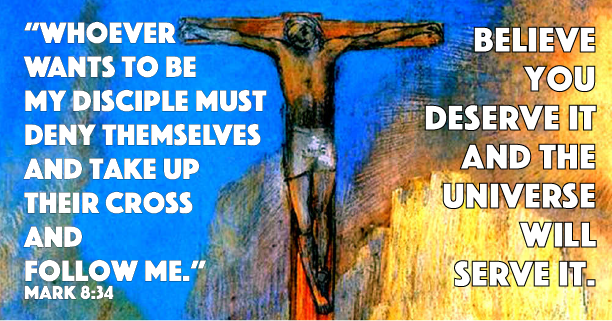
Paradox (noun): a seemingly absurd or self-contradictory statement or proposition that when investigated or explained may prove to be well founded or true.
When we look closely life is structured by paradoxes. Truth is often found in the absurd. It’s what had dominated modern literature since the War to End all Wars (no not that one, the first one in 1917). We experience it in daily life in those liminal moments when eternity breaks in. Have you ever been filled with such happiness that you suddenly were flooded with fear or sadness? Or felt like you have everything, then realized your poverty? Or been so hungry you can’t eat, so tired that you can’t sleep?
In today’s reading, we enter into the heart of the purpose, passion, and person of Jesus – which can only be said and experienced in paradox. You can only find life when you destroy it. You can only find your freedom when you follow the Way.
The disciples and their Jewish brothers and sisters had long been hungering for the arrival of the Messiah – the promised warrior of God who would come to right all wrongs, and deliver the God’s Chosen People to the Promised Land of victory, unity and peace. But when Jesus is recognized as this Messiah, the disciples, specifically Peter, despite that ardent hunger, don’t want to eat what Jesus is offering.
Biblical Scholar Ched Myers writes: that Jesus here reveals that his messiahship means political confrontation with, not rehabilitation of, the imperial state (Roman or Jewish). The central paradox of the Gospel is that the threat to punishment by death is the bottom line of the power of the state; fear of this threat keeps the dominant order intact. By resisting this fear and pursuing kingdom practice even at the cost of death, the disciples of Jesus contribute to shattering the powers’ reign of death in history. To concede the state’s sovereignty in death is to refuse its authority in life. Those who wish to “come after Jesus” will have to identify themselves with his subversive program. (Binding the Strong Man. Ched Myers. pp.246-248)
This paradox is so clear: life through death, the last will be first, the least are the greatest. And yet we either don’t want to accept it, or we just can’t follow through with the cost of living into such radical obedience. No one wants to die, to be last, to be the least. Jesus is asking too much. And yet he speaks this paradoxical call into a disbelieving world, as the crazy farmer sows seeds everywhere, trusting that growth and harvest will come.
Questions for the practice of Examen & Contemplation
- What grabs your attention in today’s reading?
- How do you hear the parable of the Crazy Farmer (Mk 4:1-20) underneath and within this text?
- The story is all about political and social confrontation. How do you see that in the text & teachings?
- What invitation to journey on the Way of Jesus do you hear in the text today?
Download the PDF Study Sheet that we’ll use in our class discussion at @CAPCOakland HERE.